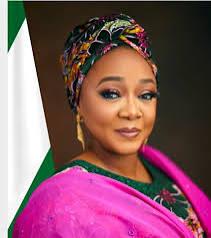US Lawmakers Move to Sanction 12 Nigerian Governors Over Alleged Christian Persecution.
According to a report by The Punch on Monday, November 3, 2025, a major diplomatic clash is brewing between Nigeria and the United States as the US Congress considers a bill that could impose sanctions on 12 northern governors, judges, and traditional rulers accused of complicity in religious persecution.
The proposed Nigeria Religious Freedom Accountability Act of 2025, sponsored by Senator Ted Cruz, follows President Donald Trump’s designation of Nigeria as a “Country of Particular Concern” for alleged Christian genocide.
The bill seeks visa bans, asset freezes, and financial restrictions on officials enforcing or tolerating Sharia or blasphemy laws under the Global Magnitsky framework.
Trump claimed thousands of Christians have been killed in Nigeria, directing the US Secretary of State, Marco Rubio, to act “without delay.” He warned of possible military intervention if the killings persist, saying the US could go “guns-a-blazing” against Islamic terrorists.
Nigeria’s Federal Government rejected the allegations, asserting that the Constitution guarantees freedom of religion and prohibits any state religion. It clarified that Sharia applies only to Muslims in certain northern states and is subject to constitutional review.
Foreign affairs experts warn the crisis could damage bilateral relations, reduce US aid, and affect arms deals vital to Nigeria’s counterterrorism efforts.
Former ambassador Mohammed Mabdul said the CPC tag would “weaken diplomatic cooperation,” while ex–Foreign Ministry spokesman Ogbole Amedu-Ode urged the government to protect citizens’ rights and rebuild global trust.
President Bola Tinubu is expected to meet Trump soon to clarify Nigeria’s stance and strengthen security ties amid rising global scrutiny.
According to a report by The Punch on Monday, November 3, 2025, a major diplomatic clash is brewing between Nigeria and the United States as the US Congress considers a bill that could impose sanctions on 12 northern governors, judges, and traditional rulers accused of complicity in religious persecution.
The proposed Nigeria Religious Freedom Accountability Act of 2025, sponsored by Senator Ted Cruz, follows President Donald Trump’s designation of Nigeria as a “Country of Particular Concern” for alleged Christian genocide.
The bill seeks visa bans, asset freezes, and financial restrictions on officials enforcing or tolerating Sharia or blasphemy laws under the Global Magnitsky framework.
Trump claimed thousands of Christians have been killed in Nigeria, directing the US Secretary of State, Marco Rubio, to act “without delay.” He warned of possible military intervention if the killings persist, saying the US could go “guns-a-blazing” against Islamic terrorists.
Nigeria’s Federal Government rejected the allegations, asserting that the Constitution guarantees freedom of religion and prohibits any state religion. It clarified that Sharia applies only to Muslims in certain northern states and is subject to constitutional review.
Foreign affairs experts warn the crisis could damage bilateral relations, reduce US aid, and affect arms deals vital to Nigeria’s counterterrorism efforts.
Former ambassador Mohammed Mabdul said the CPC tag would “weaken diplomatic cooperation,” while ex–Foreign Ministry spokesman Ogbole Amedu-Ode urged the government to protect citizens’ rights and rebuild global trust.
President Bola Tinubu is expected to meet Trump soon to clarify Nigeria’s stance and strengthen security ties amid rising global scrutiny.
US Lawmakers Move to Sanction 12 Nigerian Governors Over Alleged Christian Persecution.
According to a report by The Punch on Monday, November 3, 2025, a major diplomatic clash is brewing between Nigeria and the United States as the US Congress considers a bill that could impose sanctions on 12 northern governors, judges, and traditional rulers accused of complicity in religious persecution.
The proposed Nigeria Religious Freedom Accountability Act of 2025, sponsored by Senator Ted Cruz, follows President Donald Trump’s designation of Nigeria as a “Country of Particular Concern” for alleged Christian genocide.
The bill seeks visa bans, asset freezes, and financial restrictions on officials enforcing or tolerating Sharia or blasphemy laws under the Global Magnitsky framework.
Trump claimed thousands of Christians have been killed in Nigeria, directing the US Secretary of State, Marco Rubio, to act “without delay.” He warned of possible military intervention if the killings persist, saying the US could go “guns-a-blazing” against Islamic terrorists.
Nigeria’s Federal Government rejected the allegations, asserting that the Constitution guarantees freedom of religion and prohibits any state religion. It clarified that Sharia applies only to Muslims in certain northern states and is subject to constitutional review.
Foreign affairs experts warn the crisis could damage bilateral relations, reduce US aid, and affect arms deals vital to Nigeria’s counterterrorism efforts.
Former ambassador Mohammed Mabdul said the CPC tag would “weaken diplomatic cooperation,” while ex–Foreign Ministry spokesman Ogbole Amedu-Ode urged the government to protect citizens’ rights and rebuild global trust.
President Bola Tinubu is expected to meet Trump soon to clarify Nigeria’s stance and strengthen security ties amid rising global scrutiny.
0 Commentarios
·0 Acciones
·365 Views






